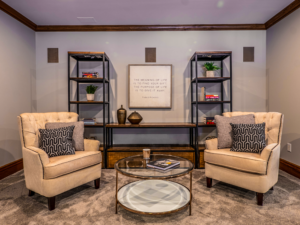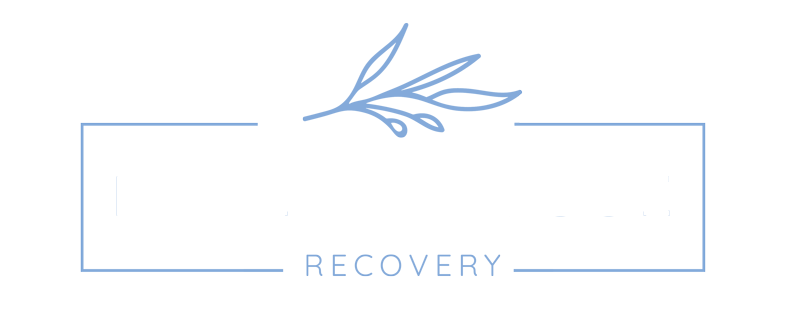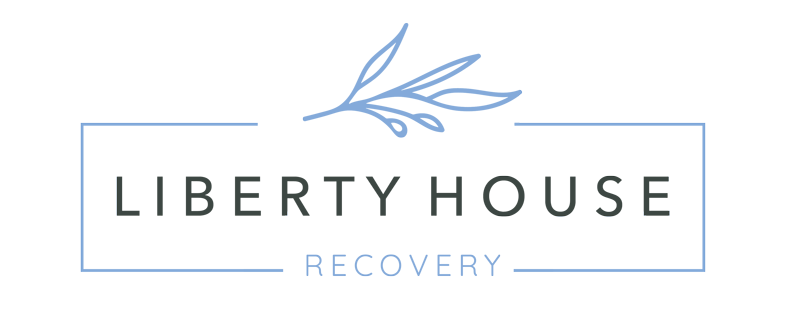THE NEED FOR DUAL-DIAGNOSIS TREATMENT
An Overview of Dual-Diagnosis
Across the nation, more than twenty-one million people struggle daily with at least one addiction. Many who struggle with addiction also struggle with one or more mental health conditions. The same is true of those who have a diagnosed (or undiagnosed) mental health condition. A significant number also meet the diagnostic criteria for a substance use disorder. Statistics show as many as half of those who seek treatment for a mental illness also need treatment for a substance use disorder. Co-occurring disorders, also known as dual diagnosis, are often closely connected or share the same root cause. Unfortunately, there is little research-based evidence to confirm whether one diagnosis or illness causes the other. An ongoing struggle with mental health or substance abuse can often lead to maladaptive coping mechanisms and new or worsening symptoms. This requires people to find an effective dual-diagnosis treatment center in Michigan to help them recover.
YOUR INSURANCE CAN HELP PAY FOR REHAB
We Work With Most Major Insurance
Your health insurance can help cover up to 100% of the costs associated with treatment at Liberty House Recovery Center. Get personal recommendations for treatment with our free insurance verification form.






We are currently unable to accept Medicare or Medicaid plans, however, we can guide you to local resources.
HOW WE CAN HELP
Substance Abuse Treatment Made for You

Treatment Services
Detox Center in Michigan
Safely detox from drugs & alcohol surrounded by expert medical staff.

Treatment Services
Residential Treatment
Our residential program offers you an escape from the chains of addiction.

Treatment Services
Unique Therapies
WHY DUAL-DIAGNOSIS MATTERS
Why Treating Dual-Diagnosis is Crucial
For many years, the concept of dual-diagnosis (co-occurring disorder) treatment was not common in the medical community. Until recently, there was a strong belief that someone with a dual diagnosis should address each concern separately, in separate treatment programs geared towards either mental health or addiction treatment. The misconception tied to this train of thought centers on how closely intertwined mental health and addiction are. Although one does not necessarily directly cause the other, they share many symptoms. The desire to alleviate the symptoms of one frequently results in experiencing symptoms of the other, and trying to detox from substances often leads to new or worsening mental health symptoms.
Fortunately, dual diagnosis is viewed much differently today. The medical and mental health treatment communities now understand that addiction and mental health are not separate struggles but deeply connected physically, behaviorally, and psychologically. Consequently, the best outcomes are often achieved when programs integrate mental health and addiction treatment models into a comprehensive, evidence-based program.
When you have a dual diagnosis, it means you have both a substance abuse disorder (addiction) and a mental health diagnosis. Dual-diagnosis conditions often share overlapping symptoms, which means treating one condition without addressing the other is nearly impossible (and highly impractical). The best option for treating dual diagnosis is to complete a program at a Michigan treatment facility where treatment professionals like those at Liberty House are trained to address co-occurring disorders. Dual diagnosis treatment is crucial as it ensures the individual and their treatment team focus on all problem areas. This encompassing focus provides the most comprehensive opportunity for recovery.
Dual diagnosis programs in Michigan, like Liberty House, identify and address mental health concerns that you might struggle with and the psychological and behavioral factors that may have led to maladaptive coping behaviors such as self-medicating. Often, this is how a substance use disorder first develops in these cases. Dual-diagnosis treatment can help you learn more about the challenges of self-medicating while providing education on healthier, safer coping strategies to use both in treatment and as part of long-term recovery. Dual diagnosis programs integrate evidence-based traditional therapies with alternative treatment models such as meditation, massage, and yoga to provide the most comprehensive treatment program possible. During your stay at Liberty House, you will participate in various forms of therapy, including individual, group, and family sessions that address both your mental health and addiction treatment needs and goals.
UNDERSTANDING YOUR TREATMENT OPTIONS
What to Expect from Dual-Diagnosis Treatment in Michigan
According to data provided by the Substance Abuse and Mental Health Services Administration (SAMHSA), nearly 9 million adults over the age of 18 struggled with a dual diagnosis in 2017. This number accounts for roughly 4% of the United States population. Most dual-diagnosis treatment programs consist of several parts, usually beginning with detox and a comprehensive assessment. These elements must ensure a treatment program is designed to meet the individual’s specific treatment needs and goals. Because addiction and mental health are unique to the individual, treatment programs need to be equally as such. Everyone who struggles with addiction or a mental health disorder will experience the symptoms of that condition differently. For this reason, cookie-cutter treatment programs are often unsuccessful, and relapse of symptoms usually occurs.
Once detox is complete, it is possible to transition into a comprehensive therapy program to address both addiction and mental health symptoms. The detox process is essential to help you wean off drugs or alcohol in a safe and medically supported setting. The duration of the detox process will depend on the length and severity of your addiction. Sometimes, it could take three to five days; in others, it may take a couple of weeks. Liberty House’s detox center in Michigan is here to help with this process. As noted above, a comprehensive dual-diagnosis treatment program in Michigan will allow one to participate in various therapies, including group, individual, and family counseling sessions. It is essential to incorporate family into many addictions and mental health treatment programs as they will provide a crucial support structure upon returning home after treatment ends. Many diagnosis treatment programs also offer alternative therapies and access to 12-step programs. Lastly, as your dual diagnosis treatment in Michigan ends, your treatment staff will work with you to design a comprehensive aftercare program that includes essential recovery elements such as ongoing therapy and support through the earliest and most challenging recovery days.
Anxiety is a common mental health condition frequently experienced alongside addiction, with each often fueling the other in a detrimental cycle. Anxiety can exacerbate substance use as individuals seek temporary relief, while addiction can intensify anxiety symptoms, creating a persistent and challenging loop. Our dual diagnosis treatment provides comprehensive clinical care for both addiction and mental health conditions simultaneously. We address these conditions on multiple fronts through a combination of group therapy, individual therapy, and medication-assisted treatment. This integrated approach ensures that clients receive holistic support at Liberty House, significantly reducing the risk of relapse and promoting long-term recovery.
Depression frequently coexists with addiction, each condition amplifying the other in a detrimental cycle. Individuals may turn to substances to alleviate depressive feelings, while addiction can intensify symptoms of depression long term, creating a deepening spiral of despair. Acknowledging the connection between these two conditions allows us to treat both and tackle the root causes of each effectively. Our dual-diagnosis treatment offers comprehensive care for both addiction and mental health issues concurrently. By integrating group therapy, individual therapy, and medication-assisted treatment, we tackle both conditions simultaneously. This holistic approach provides robust support, reducing the risk of relapse and fostering sustainable recovery.
When Bipolar disorder co-occurs with addiction, each condition exacerbates the other. The extreme mood swings of bipolar disorder, from manic highs to depressive lows, can lead individuals to use substances in an attempt to manage their symptoms. Conversely, addiction can intensify the mood instability associated with bipolar disorder, making it harder to achieve stability. Dual diagnosis treatment at Liberty House addresses both addiction and bipolar disorder simultaneously, offering comprehensive care by expert medical professionals. Group therapy, individual therapy, and medication-assisted treatment will be tailored for bipolar disorder and addiction to address both. This combination of medication management and therapeutic programs ensures clients receive the specialized support they need for practical, long-term recovery.
CLIENT TESTIMONIALS
Stories of Hope & Healing
We believe that recovery is always possible.
REQUEST A 100% CONFIDENTIAL CALLBACK
Change Your Story
*WE CURRENTLY DO NOT ACCEPT MEDICAID OR MEDICARE.
RECOVERY IS WITHIN YOUR REACH
How Our Michigan Dual-Diagnosis Rehab Can Help You Recover
If you or a loved one or one of the millions who struggle with a co-occurring diagnosis, dual diagnosis treatment is essential to ensure the best opportunity for recovery. There are thousands of addiction treatment centers across the nation, but not all are created equal. Unfortunately, many addiction treatment programs are not equipped to address the unique nature of co-occurring disorders. Therefore, choosing a program that meets all your treatment needs is critical. At Liberty House, the staff at our treatment center in Michigan understands the importance of dual diagnosis treatment. Addiction and mental health are so closely intertwined that when you struggle with the challenge related to one, it is unlikely that you can successfully achieve recovery while ignoring the symptoms of the other. Failure to adequately address a dual diagnosis is likely to lead to relapse and the need for future treatment for your mental health condition, your addiction, or both. With proper co-occurring disorder treatment, a life free of symptoms is within reach. If today is the day you have decided to make that first step on your journey towards recovery, reach out to the caring and compassionate staff at Liberty House. We’re here to help you achieve your treatment needs and goals.


